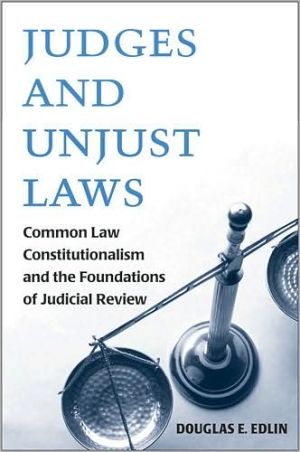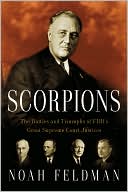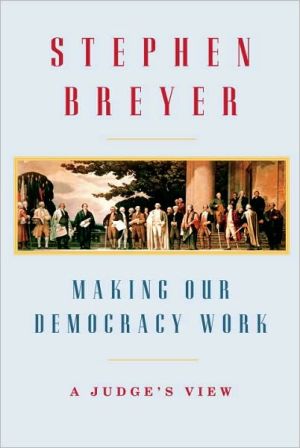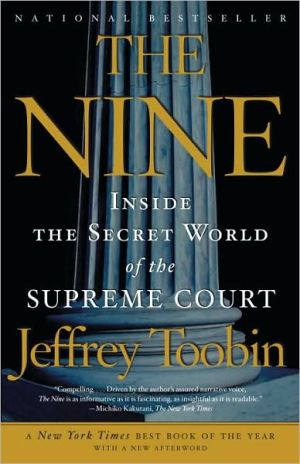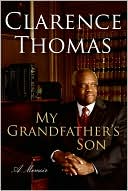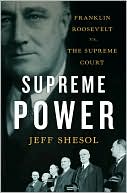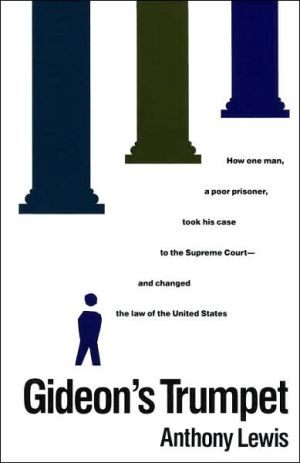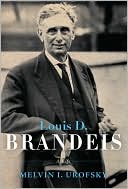Judges and Unjust Laws: Common Law Constitutionalism and the Foundations of Judicial Review
In Judges and Unjust Laws, Douglas E. Edlin uses case law analysis, legal theory, constitutional history, and political philosophy to examine the power of judicial review in the common law tradition. He finds that common law tradition gives judges a dual mandate: to apply the law and to develop it. There is no conflict between their official duty and their moral responsibility. Consequently, judges have the authority - perhaps even the obligation - to refuse to enforce laws that they...
Search in google:
Are judges legally obligated to enforce an unjust law?
Judges and Unjust Laws\ Common Law Constitutionalism and the Foundations of Judicial Review \ \ By Douglas E. Edlin \ THE UNIVERSITY OF MICHIGAN PRESS\ Copyright © 2008 University of Michigan\ All right reserved.\ ISBN: 978-0-472-11662-1 \ \ \ Chapter One\ Introduction: "The Justice of the Common Law"\ A. Unjust Laws\ Unjust laws have troubled lawyers, political scientists, and philosophers since they first reflected on the legal standards by which people govern themselves. Unjust laws raise difficult questions about our understanding of law, our aspirations for our laws, our obligations to one another, and our government's responsibilities to each of us. From Aristotle and Aquinas to Hart and Fuller, the debate about these questions has continued for millennia, and it will endure for as long as people need law to order their societies and to guide their lives.\ There are several ways that a law might be unjust. It might prohibit or curtail conduct that should be permitted. It might permit conduct that should be prohibited. It might apply or enforce unfairly an otherwise unobjectionable law. People can and will disagree about whether and in what way a particular law is unjust. I do not, however, wish to enter into that debate. For the purposes of this study, I want to posit a particular law as unjust and then ask by what legal basis, if any, a judge can resist and attempt to correct that injustice. It seemed to me that it might help clarify discussion to have a specific example of an unjust law in mind. The example of an unjust law that I will use in chapter 7 is one permitting government-sanctioned racial discrimination. I will not attempt to defend the claim, if a defense is needed, that racially discriminatory laws are unjust. I assume it for the purposes of my argument. Of course, someone might imagine a polity in which racially discriminatory laws are not necessarily unjust by definition. I am, however, interested in existing common law systems. My selection of racially discriminatory laws as paradigmatically unjust refers to the related experiences of common law nations regarding, for example, treatment of indigenous populations and the political and constitutional history of the United States with respect to slavery and legalized racial segregation and subjugation.\ In addition to overtly or substantively unjust laws, certain laws also attempt, in various ways, to undermine the institutional position or constitutional obligations of common law courts. In chapters 8 and 9, I examine some specific examples of this type of law as well. I analyze cases in which judges responded to these laws and refused to allow the integrity and authority of their courts to be enervated in this manner. In these discussions, I highlight specific fundamental common law principles that operate through judicial decisions to maintain the constitutional relationship of government organs and to enforce legal limitations on government action.\ Despite the long history of interest in problems presented by unjust laws, relatively little has been written about the particular difficulties these laws raise for judges called on to enforce them. What little has been written tends to oversimplify or misconceive the genuine nature of the conflict unjust laws pose for judges. My goal is to offer another way of looking at the conflict created by unjust laws and at judicial responses to it.\ B. The "Moral-Formal Dilemma"\ People generally assume that unjust laws create a conflict between a judge's moral obligations as a person and her legal obligations as a judge. More specifically, these laws, it is said, force a judge to choose between her human obligation to resist iniquity and her legal obligation to enforce the law as it is. In his book Justice Accused, Robert Cover described the cognitive dissonance experienced by some abolitionist judges when faced with unjust laws as the "moral-formal dilemma." Cover used laws permitting slavery, in particular the Fugitive Slave Act of 1850, as his example of unjust laws that gave rise to the moral-formal dilemma for judges who were, at least while they were off the bench, abolitionists, such as Joseph Story.\ In one sense there was a general, pervasive disparity between the individual's image of himself as a moral human being, opposed to human slavery as part of his moral code, and his image of himself as a faithful judge, applying legal rules impersonally-which rules required in many instances recognition, facilitation, or legitimation of slavery.\ As Cover documents in his book, most of these judges resolved this conflict by taking the formal route, enforcing the act, and relying on platitudes about "fidelity to law" or judicial deference and restraint required by the separation of powers.\ In his review of Justice Accused, Ronald Dworkin claims that Story and other abolitionist judges enforced laws they believed to be unjust because they rejected notions of natural law that might have provided a basis in fundamental legal principle for refusing to uphold the Fugitive Slave Act. As others have noted, the judicial rejection of natural law asserted by Dworkin is historically baseless. Nonetheless, as Anthony Sebok explains, "Cover's conclusion is that the leading legal theory of the age-legal positivism-so dominated these judges that they could see but not act upon the appeals made from natural law in their courtrooms." As I will discuss later, Gustav Radbruch leveled a similar charge against positivism for fostering an environment in which the Nazi government could subvert the legal principles and constitutional values of Weimar. Dworkin argues that judges who felt trapped by the moral-formal dilemma, such as Story, were in this predicament because they "had abandoned a theory of law ... [according to which] the law of a community consists not simply in the discrete statutes and rules that its officials enact but in the general principles of justice and fairness that these statutes and rules, taken together, presuppose by way of implicit justification."\ Undoubtedly, Dworkin has his own theory of law in mind as the alternative that would have permitted abolitionist judges to invalidate the Fugitive Slave Act without resort to natural law theory. Dworkin argued that the Fugitive Slave Act violated the U.S. Constitution, because of the Constitution's conceptions of individual freedom, procedural due process, and federalism. Sebok argues convincingly, however, that Dworkin's claims are fundamentally inconsistent with the relevant constitutional language and history, state laws then existing, and important state and federal precedent. Sebok also offers a reconstruction of Dworkin's argument that might support his conclusion about the unconstitutionality of the Fugitive Slave Act. Moreover, in a later essay, Sebok further develops his argument about the unconstitutionality of the Fugitive Slave Act by demonstrating that Lord Mansfield's famous decision in Somerset v. Stewart, which effectively ended slavery in England, was incorporated into American law by precedent and statute. Significantly for the argument I will develop, Sebok emphasizes in this later piece the importance that influential early American judges placed on authoritative sources for judicial reasoning and decision making in accordance with the common law.\ I will return to aspects of Dworkin's theory in later chapters. For now, I just want to mention that I agree with his statement (although not with the underlying argument in his review of Justice Accused) concerning the importance of "general principles of justice" to judicial decision making in cases involving unjust laws. For reasons I explain later, I believe a defense of the use of these principles by judges in these cases demands a more exacting theoretical and doctrinal explanation than Dworkin provides of their source and use in accordance with the method and history of the common law.\ The moral-formal dilemma is not just a means of describing the quandary in which certain nineteenth-century American judges found themselves. The moral-formal dilemma has been so well and thoroughly osmosed by modern lawyers, judges, and scholars that we do not even question it anymore. But this is a mistake, and it has led contemporary legal and political theorists to further errors.\ C. Unsatisfying Answers\ Theorists conditioned to think only along the moral-formal axis assume that a judge faced with an unjust law has only three unpalatable options: "he would have to consider whether he should actually enforce it [the unjust law] ... or whether he should lie and say that this was not the law after all, or whether he should resign." To me and to others, this Hobson's choice is deeply troubling. Looking through moral-formal eyes, though, no other options are available to a judge in this situation.\ These theorists agree that, morally speaking, judges should refuse to enforce the law. But these theorists also agree that judges do so only at the expense of their countervailing legal duty to apply the law as they find it. Some are willing to accept this form of civil disobedience practiced from the bench. In fact, some theorists claim that a judge's moral duty to resist injustice justifies his subverting the judicial process by telling legal lies about the actual bases for his decision.\ The problem is that, with moral-formal eyes, there seems nothing else a judge can do, legally speaking, to refuse to enforce unjust laws. There is another possibility, however. There are legal arguments that support a common law judge's ability and obligation, as a judge, to refuse to enforce unjust laws.\ D. An Alternative\ The moral-formal dilemma is, to my mind, a false dichotomy. It proceeds from an incomplete understanding of the judicial function to an impoverished account of judicial obligation. As the term indicates, the legal side of the dilemma provides judges with only a formalistic account of their legal authority and responsibilities. This limited, formal view sees the judge's legal authority as limited solely to the enforcement of the law as it is. But this is not a complete picture of the common law judicial function. Once the full extent of a judge's legal authority is considered, the dilemma's formulation can be corrected, and the problem can be reconsidered.\ I argue that unjust laws do not create a moral-formal or moral-legal dilemma; they create a legal-legal dilemma. Unjust laws create a conflict between two of a common law judge's most fundamental legal obligations: to apply the law and to develop the law. The crucial point for my purposes here is that I intend to provide a legal, rather than a moral, justification for judges to refuse to enforce unjust laws without resigning or resorting to prevarication.\ I begin my argument in chapter 2 with a general discussion of the common law as a legal system, a judicial method, and a body of doctrine and principle. In that chapter, I explain the understanding of legal sources that I use throughout my argument. I then consider the judicial process and its central importance to the common law legal system and tradition. In doing so, I refer to the doctrines of precedent and to what Roscoe Pound and others refer to as the "supremacy of law." These doctrines function as descriptive indicators of common law systems, both in terms of the sources used in legal argumentation and in terms of the function of courts and law in defining and restraining the breadth of government power. Pound traced the doctrine of supremacy of law to Edward Coke's opinion in Dr. Bonham's Case. Pound's reference to Bonham in relation to the supremacy of law connects directly to my discussion in chapters 5 and 6 of Bonham as a seminal legal source in the common law tradition for the establishment of judicial review and to my discussion in chapters 8 and 9 of the Anglo-American constitutional commitment to rule-of-law values. I also explain in chapter 2 that the doctrines of precedent and supremacy of law apply to the internal and external processes of adjudication and that the common law judicial process applies to all categories of adjudication, including cases involving statutory construction or constitutional interpretation. Chapter 2 concludes with an examination of various jurisprudential approaches to the identification of the law's content and the relationship of that content to its moral worth. More specifically, I address the perspectives of inclusive and exclusive positivism concerning this issue, along with the views of Ronald Dworkin. In reviewing these different theoretical perspectives, I hope to highlight the ways that they intersect with my argument in this book and the ways that they do not.\ I then turn, in chapters 3 and 4, to the arguments for the judicial obligation to apply the law. In this discussion and in the later one for the judicial obligation to develop the law, I pursue two distinct but complementary lines or types of argument. The first line of argument relies on "legal sources" as I define that term in chapter 2. The second line of argument is conceptual-that is, based on the concept of the common law itself. These arguments are presented, as lawyers sometimes say, "in the alternative," meaning that the arguments are independent of one another and that the reader is free to accept either one or both of them.\ My analysis of the judicial obligation to apply the law starts, in chapter 3, with the source-based argument. It seems to me that the doctrine of stare decisis grounds part of the judge's fundamental legal obligation to apply the law, when the law is found in judicial decisions. I explore the bedrock importance of stare decisis to the common law tradition and explain that, to have any meaningful effect on judicial decision making, stare decisis must sometimes (or often) require a judge to abide by precedent even where the judge would prefer to reach a different result. I examine the attempts by several theorists to avoid the repercussions of stare decisis when the doctrine demands that judges produce unjust rulings. I argue that each of these attempts fails because it attempts to avoid the strictures of stare decisis by denying its genuine force and prevalence. I argue that the only way to claim that stare decisis can yield in a given case is to locate an equally important and equally fundamental common law principle that will permit judges to avoid injustice. This principle is to be found in the judicial obligation to develop the law.\ The second prong of the source-based argument for the judicial obligation to apply the law concerns legislative supremacy. Just as stare decisis requires judges to apply case law, legislative supremacy requires judges to enforce statutes. To some extent, this might seem more a matter of institutional interaction or political ideology. As I discuss in the second half of chapter 3, however, the judicial recognition of legislative authority to enact binding law results in the force of legislative supremacy as a legal constraint and not just as a political fact. I then examine, as I did with stare decisis, some attempts by scholars to avoid the constraints of legislative supremacy when it compels judges to enforce unjust statutes. As with stare decisis, I argue that these attempts to avoid legislative supremacy are merely attempts to reconstitute legislative supremacy, usually through the pretext of statutory interpretation, rather than efforts to meet the doctrine head-on. And as with stare decisis, I argue that legislative supremacy can be superseded only by a similarly foundational judicial obligation to develop the law.\ (Continues...)\ \ \ \ \ Excerpted from Judges and Unjust Laws by Douglas E. Edlin Copyright © 2008 by University of Michigan . Excerpted by permission.\ All rights reserved. No part of this excerpt may be reproduced or reprinted without permission in writing from the publisher.\ Excerpts are provided by Dial-A-Book Inc. solely for the personal use of visitors to this web site. \ \
Contents Acknowledgments....................xiii1. INTRODUCTION: "THE JUSTICE OF THE COMMON LAW"....................12. THE COMMON LAW....................223. THE SOURCE-BASED ARGUMENT FOR THE JUDICIAL OBLIGATION TO APPLY THE LAW....................334. THE CONCEPTUAL ARGUMENT FOR THE JUDICIAL OBLIGATION TO APPLY THE LAW....................475. THE SOURCE-BASED ARGUMENT FOR THE JUDICIAL OBLIGATION TO DEVELOP THE LAW: PART I (ENGLAND)....................536. THE SOURCE-BASED ARGUMENT FOR THE JUDICIAL OBLIGATION TO DEVELOP THE LAW: PART II (UNITED STATES)....................797. THE CONCEPTUAL ARGUMENT FOR THE JUDICIAL OBLIGATION TO DEVELOP THE LAW....................1128. COMMON LAW REVIEW....................1389. COMMON LAW REVIEW IN TWO COMMON LAW SYSTEMS....................16910. CONCLUSION....................192Table of Authorities....................199Notes....................207References....................283Index....................301
